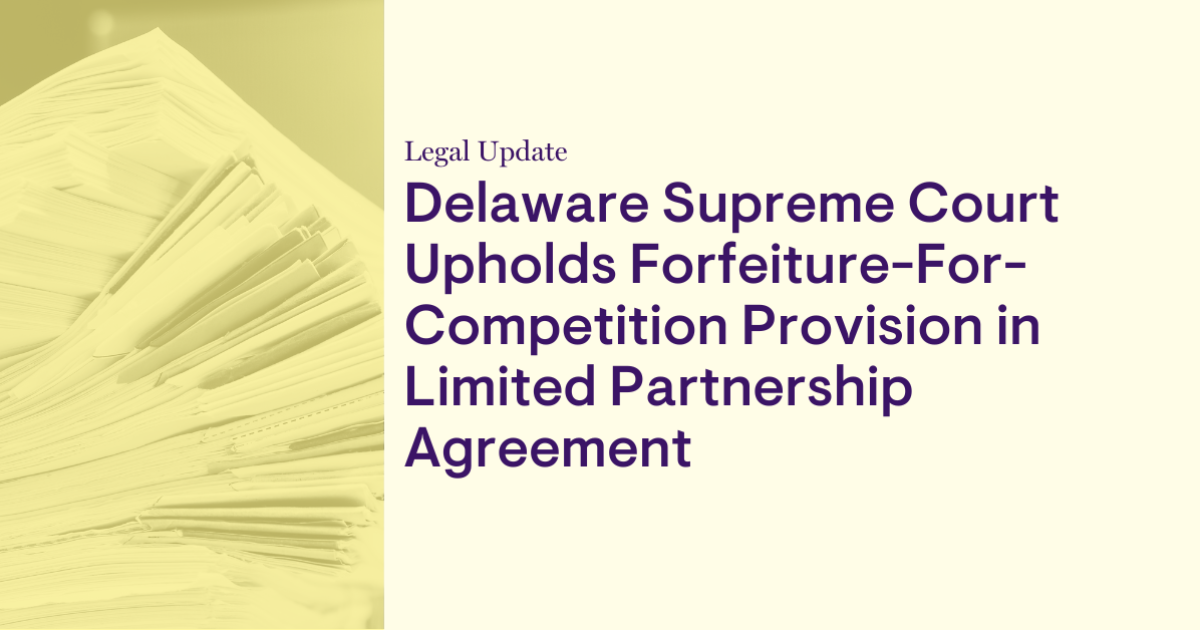
Stemming a tide of Delaware decisions closely scrutinizing and refusing to enforce non-compete agreements, Delaware’s Supreme Court held that forfeiture-for-competition provisions arising out of a Delaware limited partnership agreement are enforceable, reversing the Court of Chancery’s year-old decision in Cantor Fitzgerald, L.P. v. Ainslie, et al. Cantor Fitzgerald, Ltd. P’ship v. Ainslie, No. 162, 2023, 2024 Del. LEXIS 28 (Jan. 29, 2024).
Background
Four former Cantor Fitzgerald limited partners filed suit in the Court of Chancery asserting breach of contract claims and that a four-year forfeiture-for-competition provision in the Limited Partnership Agreement was unenforceable. The forfeiture-for-competition provision authorized Cantor Fitzgerald to withhold disbursements from the partners’ capital accounts if they engaged in competitive activities with the partnership.
The Court of Chancery entered summary judgment in favor of the plaintiffs, holding that the forfeiture-for-competition provision was an unenforceable restraint on trade, and awarding the plaintiffs $12.5 million.
Supreme Court Decision
On appeal, Delaware’s Supreme Court reversed the Court of Chancery’s decision. The Supreme Court distinguishing forfeiture-for-competition provisions in limited partnership agreements from traditional non-competition agreements.
The Supreme Court ruled that, while non-competition agreements should be analyzed under a “reasonableness” test, such analysis should not be applied to forfeiture-for-competition agreements. Instead, traditional contract principles should be considered when evaluating the enforceability of such agreements in a limited partnership context.
In reversing the Court of Chancery’s decision, the Supreme Court reasoned, “When sophisticated parties agree in a limited partnership agreement that a partner, who voluntarily withdraws from, and then competes with, the partnership, will forfeit contingent post-withdrawal financial benefits, public-policy considerations weigh in favor of enforcing the agreement.”
Implications
While Delaware courts traditionally disfavor overly restrictive non-competition agreements, the Supreme Court’s decision highlights a distinction as applied to forfeiture-for-competition provisions within Delaware limited partnership agreements.
The Delaware Supreme Court’s reasoning is akin to the New York “employee choice doctrine” adopted by the New York State Court of Appeals. Under New York’s “employee choice doctrine,” an employee who resigns and violates the terms of the employee’s non-competition agreement can be deemed to have forfeited any legal right to post-employment compensation even if the underlying non-competition agreement is deemed unreasonable.
Jackson Lewis attorneys in the Restrictive Covenants, Trade Secrets and Unfair Competition practice group are available to discuss the impact of this decision and assist in related matters. Please contact a Jackson Lewis attorney if you have any questions.

Source link











